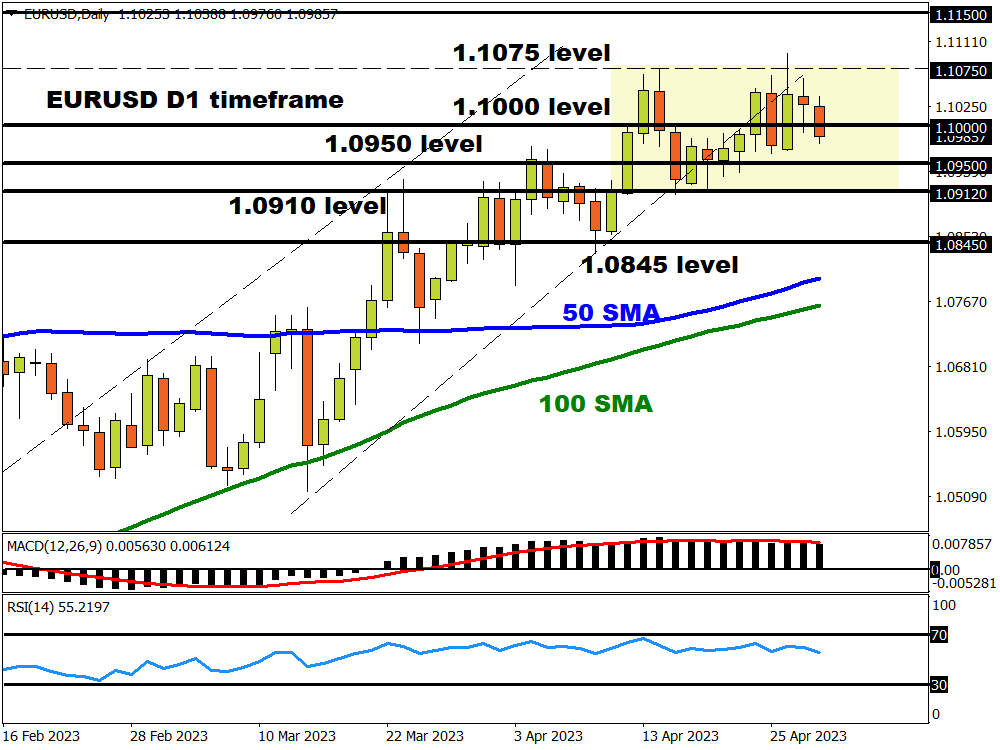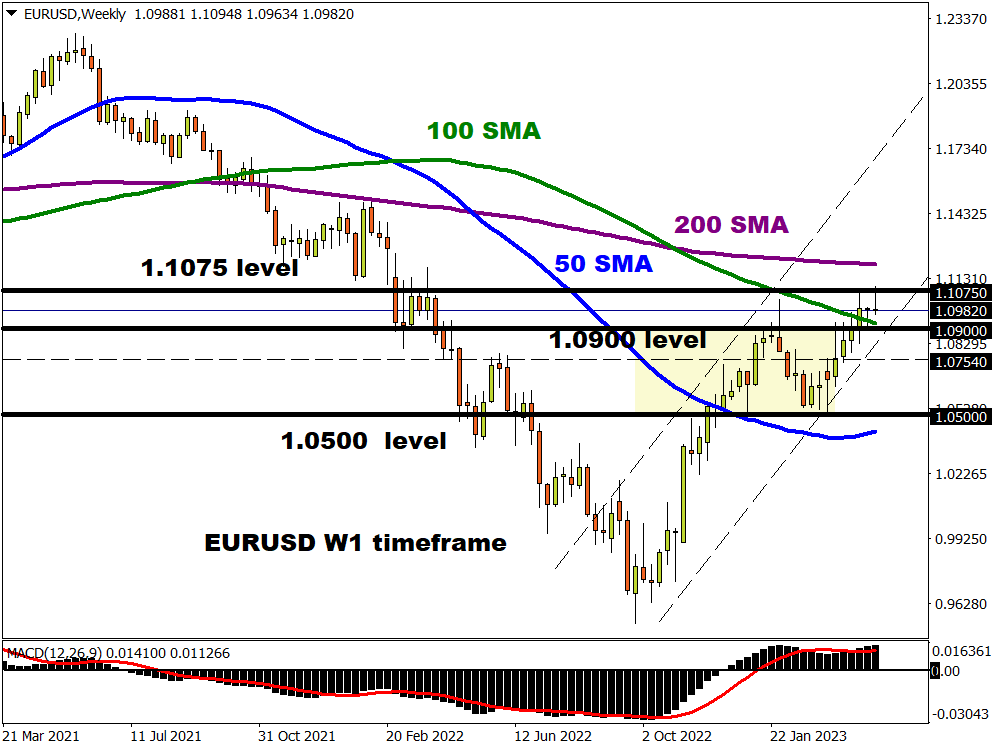If you thought the last few days were wild for financial markets, then wait until you see what’s in store for the week ahead…
Investors will be served a generous platter of risk investors ranging from pivotal major central bank meetings in the shape of the Reserve Bank of Australia (RBA), Federal Reserve (Fed), and European Central Bank (ECB).
This will be complemented with top-tier data like the US ISM and Friday’s monthly non-farm payrolls report. Another wave of quarterly earnings from the largest economies in the world will top this off, leaving even the hungriest of market players satisfied.
The first trading week of May features these scheduled economic data releases and events:
Monday, May 1
- May Day holiday: UK, France & China
- USD: ISM manufacturing
Tuesday, May 2
- AUD: RBA rate decision
- EUR: CPI, Eurozone S&P Global manufacturing PMI
- GBP: UK S&P Global manufacturing PMI
- USD: US factory orders, revised durable goods
Wednesday, May 3
- AUD: Australia retail sales
- NZD: RBNZ financial stability report
- EUR: Eurozone unemployment
- USD: Fed rate decision, US ADP payrolls data
Thursday, May 4
- CNH: China Caixin manufacturing PMI
- EUR: ECB rate decision
- USD: US initial jobless claims
- NQ100_m: Apple Inc (after US markets close)
Friday, May 5
- CNH: China Caixin services PMI
- EUR: Eurozone retail sales
- USD: US April nonfarm payrolls (NFP)
Given the crackerjack list of risk events, investors may feel like a kid in a candy store of volatility and opportunity! Our focus will fall on the world’s most popular traded currency pair which could be heavily influenced by central bank meetings and economic data.
Here are 3 reasons why we’re focusing on the EURUSD for the coming week:
- Fed + ECB meeting combo
A central bank combo featuring the Fed and ECB could spark explosive levels of volatility on the EURUSD.
Markets widely expect the Federal Reserve to raise interest rates by 25 basis points on Wednesday, taking the upper band of the Fed funds rates to 5.25%. The key question is whether this will be the final hike that marks the end of the Central Bank's hiking cycle. Given how annual US inflation cooled for a ninth consecutive period in March and economic growth slowed in Q1, this could strengthen the argument for a cut down the road. If the Fed moves along with a dovish hike, dollar weakness could become a dominant theme in the week ahead.
In regards to the ECB, a 25-basis point hike has been penciled for its Thursday meeting. Stabilizing inflationary pressures continue to support expectations around the central bank shifting into lower gear from 50 basis point hikes. It may be wise to keep a close eye on the euro-inflation data for April which could influence May’s policy decision and beyond. If core inflation remains sticky, this could fuel speculation of the ECB hiking into the summer.
Whatever the outcome of both central bank rate decisions, it will certainly impact the EURUSD.
- US April nonfarm payrolls
The NFP may provide fresh clues on what actions the Federal Reserve may take beyond May.
Markets expect the US economy to have created 177,000 jobs in April which is less than the prior month while the unemployment rate is seen holding at 3.5%. A stronger-than-expected US jobs report may support expectations around the Fed keeping US interest rates high for longer – boosting the dollar. However, further evidence of weakening US jobs markets may reinforce bets around the Fed pausing rate hikes, before eventually lowering them. Such a scenario is likely to weaken the dollar – pushing the EURUSD higher.
- EURUSD ready to breakout?
Euro bulls have struggled to conquer the 1.1075 level on repeated occasions.
Although the trend remains bullish with prices above the 50 and 100-day Simple Moving Average, bears could strike if prices slip below 1.0950. A daily close below this point could signal a decline towards 1.0910 and 1.0845, respectively. Alternatively, a strong breakout above 1.1075 could inspire an incline toward levels not seen since late March 2022 at 1.1150.

Zooming out to the weekly chart, bulls are clearly in the driving seat. A strong weekly close above 1.1075 may signal a move toward the 200-week SMA near 1.1200. If prices dip back under 1.0900, prices may test 1.0754 and 1.0500, respectively.

At the time of writing Bloomberg’s FX model forecasts a 72% chance that EURUSD will trade within the 1.0827 – 1.1153 range over the upcoming week.